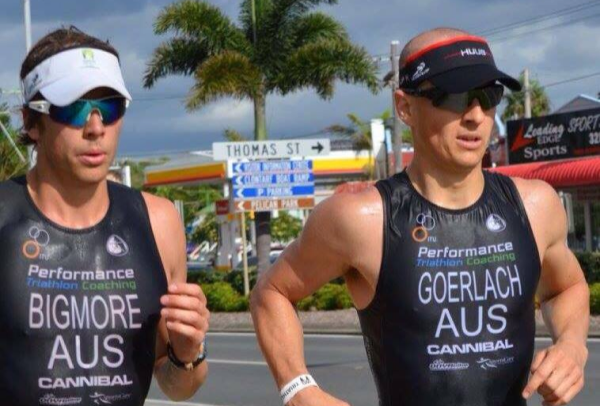Diagnosed with hearing loss at age 3 and Usher Syndrome Type II at age 15, Jonathan wears hearing aids, has no peripheral vision and is night-blind.
Despite his talent and passion for sport as a kid, Jonathan gave it up following the further deterioration of his eyesight. It was a challenging road for Jonathan as he struggled with losing the ability to do the things he loved. Sometime later, while in Europe working in sports massage, Jonathan was finally tempted to put his running shoes back on and has never looked back. His determination and hard work resulting in him becoming one of Australia’s top para triathletes.
We asked Jonathan to share a few of his life lessons from along the way.
What advice would you give parents and families of someone with a vision impairment?
Don’t let your protective instincts get in the way of letting your child/friend live a normal life. That means letting them make mistakes and learn things for themselves.
As a kid with a disability, it’s natural that people just want to protect you. But this can hold you back from doing things that might be risky or seem a little crazy. I really hit rock bottom when I realised I no longer had any independence to make my own decisions. It can also be difficult for others not affected by a disability to empathise. While they may try they really don’t know what it is like. So you need to take the lead and show them what you can do.
What advice would you give to your younger self?
Ask for help. I had too much pride in being independent. Try to be comfortable with asking so you can get the support you need. Whether it’s a note taker for school or something to help with your employment just ask. Having a degenerative condition means that things change over time and you need to learn to adjust along the way. As an athlete I am constantly asking my teammates and guides for help. If you can be ok with asking for what you need at the time it can help you to feel more confident. I would also tell myself to be ok with having a disability. And be accepting of what might be coming.
What helped you cope and adjust?
When I was diagnosed, social media didn’t exist and it wasn’t as easy as it is now to find out about the support available. It was a big relief for me when one day I came across the blog of someone who had written about their experience of having a vision impairment. It was like they had described everything that was in my head. I showed my mum and sister and they cried.Things also really changed for me when I went to England and met with five other young people with eye disease as part of a small gathering of the Foundation for Fighting Blindnesss UK RP Community. It was there that I started to realise what I could do. It was a tipping point for me and the start of my life in many ways. I gained the confidence to talk about what it was like to have a disability. Speaking with them helped to break down the barriers in my own mind. It also helped me to feel like I had a place in the community and society more broadly.
How do you feel about your diagnosis?
Disability has spurred me to do things I never thought were possible. It is important to know and remember that whatever your diagnosis that the future is not that bad. I have gone on to do things I never thought I would like public speaking and being an elite athlete.
I have developed the confidence and the attitude to think about what I can do. Now I think “ Why can’t I do that?”. Once I got back into sport I realised anything was possible. I started to look out for opportunities and understood what my purpose and direction was. I never believed that I would find something to do that I was so passionate about. I went from drinking with my mates to setting my sights on the Paralympics.
What about relationships?
I have developed a great network of friends through the sports community and that has contributed to developing my confidence.
I didn’t think I would ever actually be able to have a ‘normal’ relationship with someone. However, it is possible. You may think that you can’t have them because you have a disability but that is not the case. You can have a house and kids and relationships just like everyone else.

